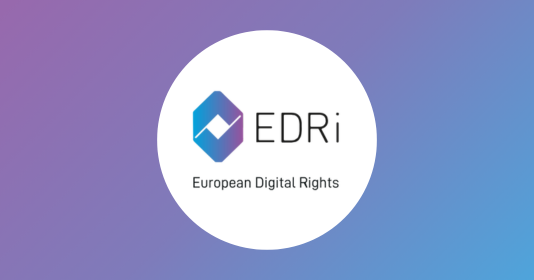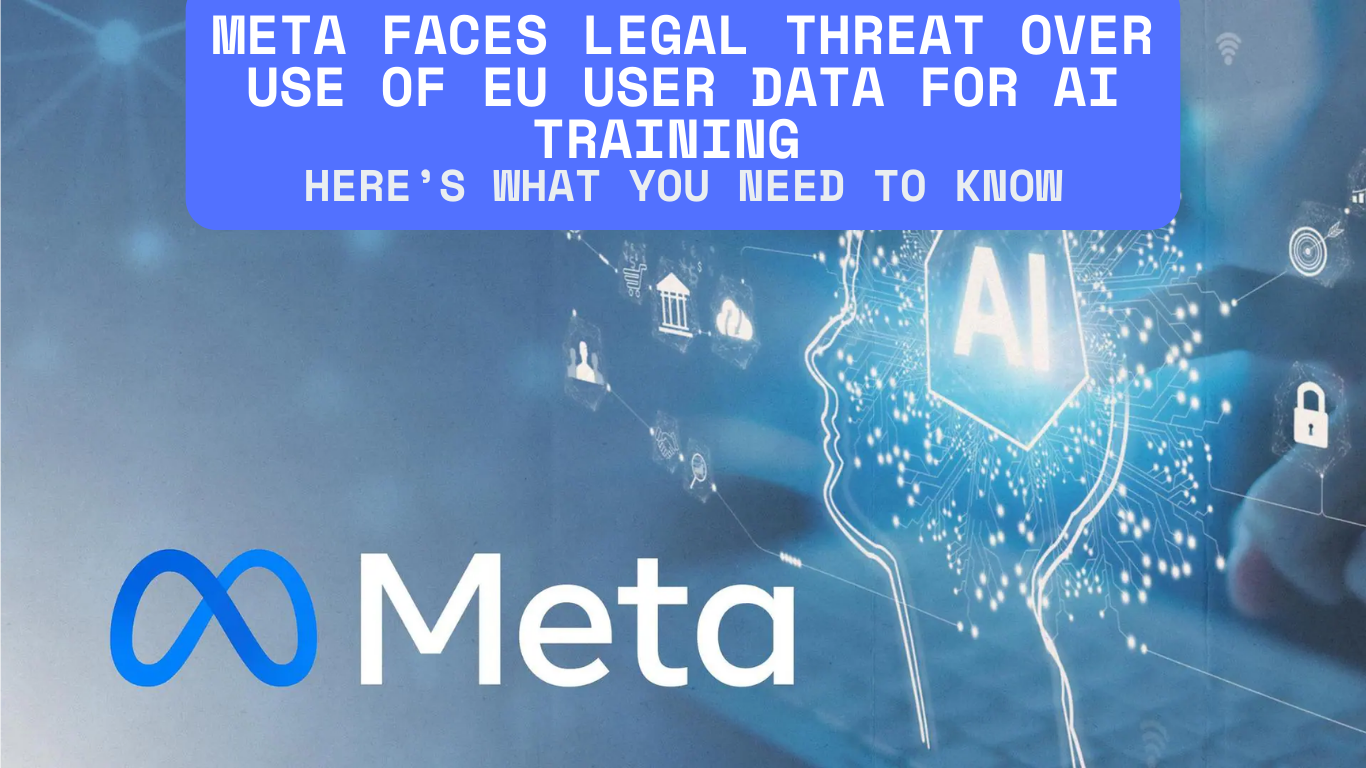In a major development affecting digital privacy in Europe, Meta (the parent company of Facebook and Instagram) is under fire for its plan to use public social media posts from European users to train its artificial intelligence models. An advocacy group has threatened legal action, while users are being urged to take immediate steps to protect their data.
This comes just days after Reuters reported that a European digital rights organization had warned Meta with a potential injunction over its handling of EU citizens’ data under the General Data Protection Regulation (GDPR).
Meanwhile, Euronews Next confirmed that Meta will begin using European user content to train AI starting May 27, 2025, unless users proactively object.
Let’s break down what this means for brands, marketers, and everyday users — and how you can respond.
🔍 What’s Happening With Meta’s AI Training?
Meta recently announced that it would start leveraging publicly available social media content from Facebook and Instagram in the European Union to train its generative AI models.
These AI systems are used across Meta’s ecosystem — from AI chatbots to content recommendation engines, and even ad targeting tools.
While Meta claims that only publicly posted content will be used, critics argue that many users are unaware their posts could be repurposed for AI training without explicit consent.
✅ Key Fact: The GDPR requires explicit consent for personal data to be processed for purposes like AI training — and many believe Meta is skirting around these obligations.
⚖️ Legal Threat From Advocacy Group

According to Reuters, a European digital rights advocacy group has sent Meta a formal notice threatening an injunction if the company proceeds with its AI training plans without proper compliance with GDPR.
The group argues that:
- Meta has not obtained freely given, informed, and unambiguous consent
- Users are not clearly informed about how their data is being used
- Opt-out mechanisms are buried and not user-friendly
💡 This legal challenge could set a precedent for how big tech companies handle data in the EU — especially when it comes to AI development.
📢 Public Reaction and Regulatory Concerns
Privacy regulators in Belgium, France, and the Netherlands have already raised concerns about Meta’s AI practices earlier this year. These watchdogs are now expected to ramp up scrutiny following the new announcement.

Brittany Kaiser, the Cambridge Analytica whistleblower and data rights activist, told Euronews Next that European users do have rights — but they must act quickly and decisively to protect their data.
“You do actually have rights that you can exercise. It’s not super easy to exercise them, but you can do it,” she said.
🛑 How to Opt Out of Meta Using Your Data
If you’re a Facebook or Instagram user in the EU, here’s how you can opt out of Meta using your data for AI training:
🔹 On Facebook:
- Log into your account.
- Click on your profile icon in the top-right corner.
- Go to Settings and Privacy > Privacy Centre.
- Look for the section labeled “How Meta uses information for generative AI models and features”.
- Scroll down and click on “Right to Object”.
- Enter your email address at the bottom of the form and submit.
- You should receive a confirmation email and in-app notification.
🔹 On Instagram:
- Log into your account.
- Tap your profile icon and then the three lines in the top-right corner.
- Navigate to Settings and Privacy > More Info and Support > About.
- Click on Privacy Policy, then scroll to the top and click “Learn more about your right to object.”
- Submit your request via the form provided.
⚠️ Note: Meta says it will review objection requests in accordance with relevant data protection laws, but does not guarantee approval.
🧩 Going Further: Exercising Your Full GDPR Rights
Kaiser also encouraged users to go beyond opting out:
- Request a full copy of your data held by Meta and other platforms
- Withdraw consent for data sharing
- Request deletion of specific data points
You can use pre-written templates found online to send formal GDPR requests to Meta and other platforms.
💡 Tip: Companies are legally required to respond within 30 days under GDPR.
📈 Implications for Brands and Marketers
For businesses and marketers working with Meta’s platforms, this situation raises several important considerations:
1. Transparency Is Key
As Meta faces scrutiny, consumers are increasingly aware of how their data is used. Brands should lead with transparency in their own marketing and data practices.
2. Reputation Management Matters
Brand trust is closely tied to data ethics. If your brand uses AI or works with Meta’s ad tools, ensure your messaging reflects responsible data usage.
3. Regulatory Compliance Can Be a Competitive Advantage
Brands that actively communicate their commitment to GDPR and ethical AI may stand out in a crowded market.
4. User Consent Tools Should Be Clear
If you collect user data, make sure your opt-in/opt-out processes are as simple and transparent as Meta’s should be.
📌 Final Thoughts: A Turning Point for AI and Privacy
Meta’s move to use EU user data for AI training marks a critical moment in the ongoing debate over digital rights and AI ethics.
As AI becomes more central to marketing, advertising, and content creation, companies must navigate complex regulations and growing consumer expectations around data privacy.
At Make Me Noteable, we help brands build trustworthy digital strategies, manage online reputation, and stay ahead of regulatory changes. Whether you’re launching a campaign or managing customer data, we ensure your brand stays compliant, credible, and notable.
📞 Want Help Managing Your Brand’s Digital Reputation?
We offer:
- Digital PR strategy
- Online reputation management
- GDPR-compliant content audits
- Social media policy consulting
- Crisis communication planning
👉 Let us help you build a strong, ethical brand presence in the age of AI. [Contact Us Today]























